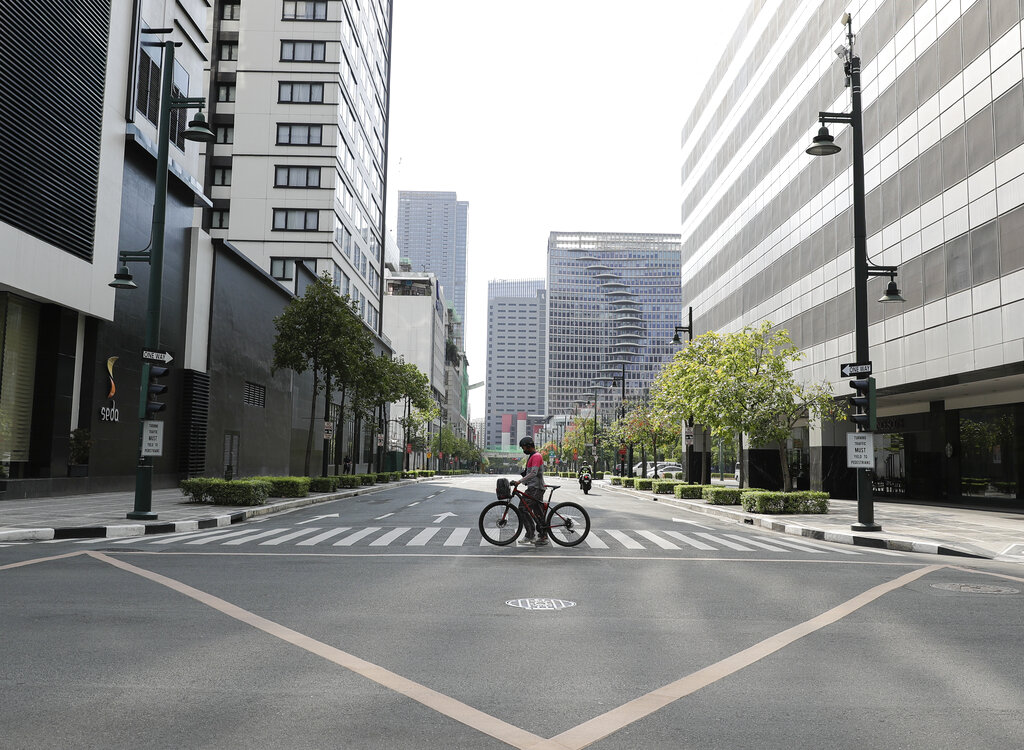
A man pushes his bicycle at a usually busy street during an enhanced community quarantine to prevent the spread of the new coronavirus in Manila, Philippines on Monday, April 20, 2020. (AP Photo/Aaron Favila)
MANILA, Philippines — Around 5.4 percent or an estimated 4.1 million working Filipinos got stranded during the government-imposed community quarantine to curb the spread of the coronavirus disease (COVID-19), according to the latest Social Weather Stations (SWS) survey released on Saturday.
In the latest survey, it showed that out of the said number, 11.5 percent belong to the 18 to 24-year-old age group, followed by 6.9 percent of those aged between 25 to 34-year-olds.
Meanwhile, 4.2 percent of those stranded are aged between 35 to 44 years old, 4.1 percent are from the 45 to 54 years old age range, 3.2 percent among those 55 years old and above, and 2.7 percent among those between 15 to 17 years old.
The survey was based on the 2020 projected population of 75.8 million working-age persons.
Data from Social Weather Station.
The poll also showed that more men, at 6.2 percent or an estimated 2.3 million, got stranded during the quarantine period, as compared to women with a record of 4.7 percent of 1.8 million.
The latest survey, conducted from May 4 to 10, used mobile phone and computer-assisted telephone interviewing (CATI), and had 4,010 respondents—those 15 years old and above—nationwide.
Sampling error margins for the survey were ±2 percent for national percentages, ±6 percent for Metro Manila, ±2 percent or Balance Luzon, ±3 percent Visayas, and ±3 percent in Mindanao.
The respondents were asked the question: “Gusto po sana naming malaman ang lugar kung saan kayo kasalukuyang tumutuloy. Kayo po ba sa kasalukuyan ay… (Namamalagi sa lugar ng permanenteng tirahan, o Namamalagi sa ibang lugar dahil doon na inabutan ng Enhanced Community Quarantine o ECQ)?”
(We would like to know about your current location. Are you currently… [Staying in your place of permanent residence, or Staying in another place because of the Enhanced Community Quarantine or ECQ]?)
During the period of ECQ imposed in the entire Luzon region in March, all modes of public transportation were suspended in a bid to contain the spread of SARS-COV-2, the virus that causes COVID-19.